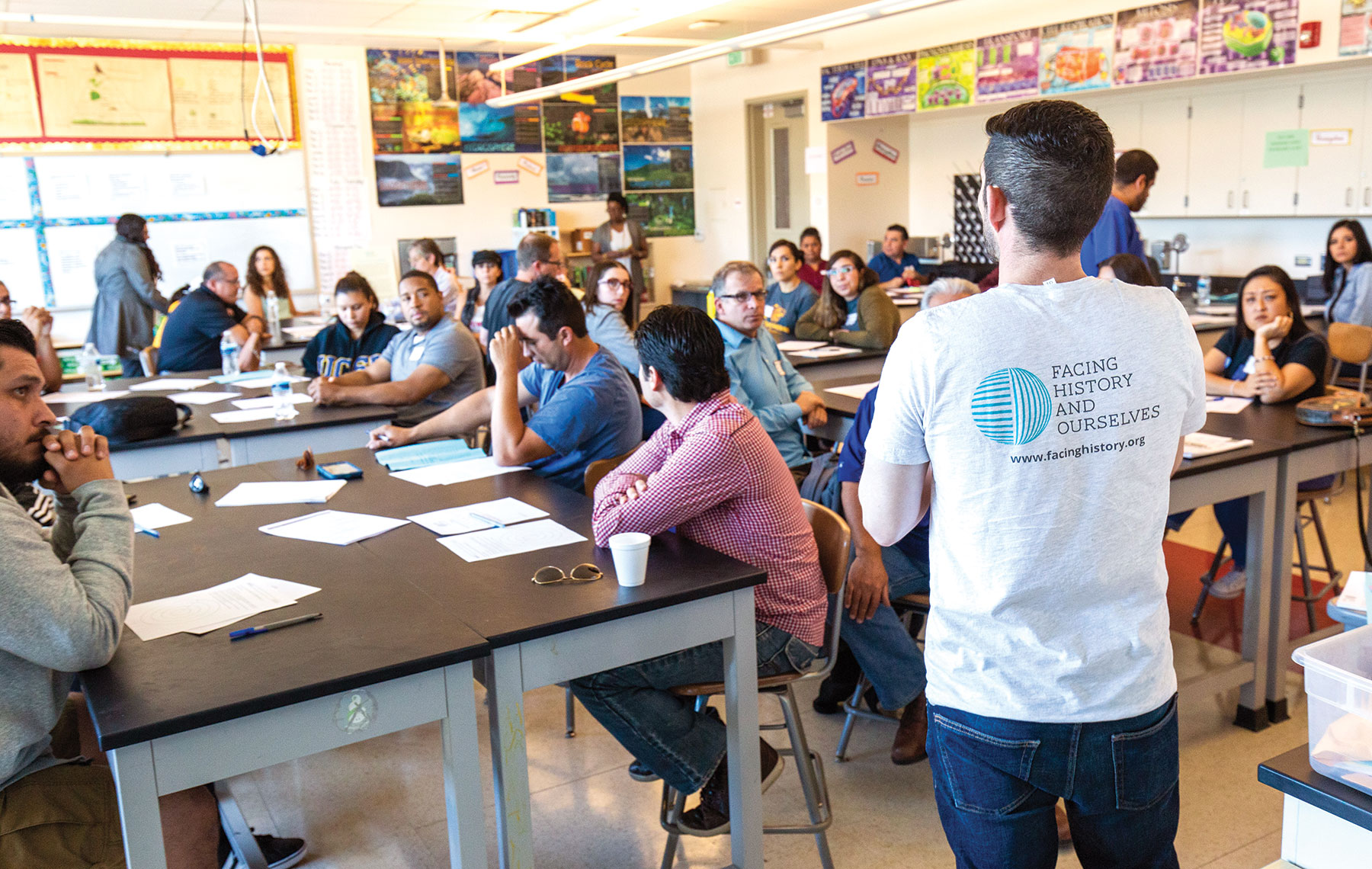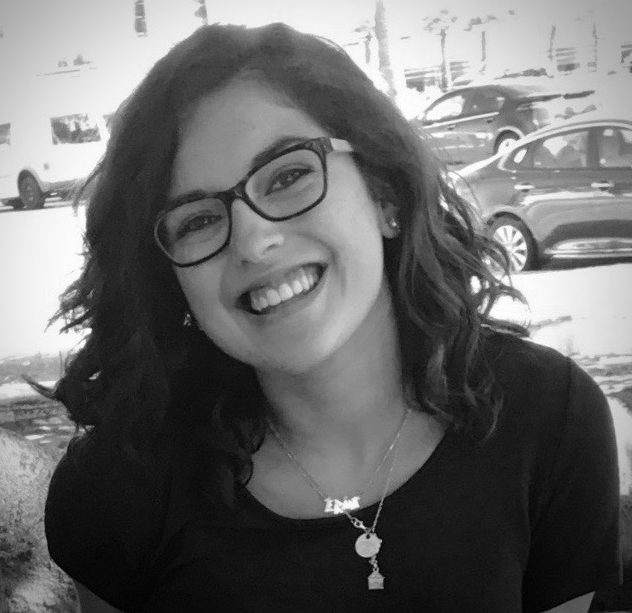 Photo courtesy from Facing History and Ourselves.
Photo courtesy from Facing History and Ourselves. Liz Vogel, the Los Angeles executive director of the nonprofit Facing History and Ourselves, recalls the moments in her young adulthood where she experienced anti-Semitism. And yet, she told the Journal, she never expected to see and discuss “increased levels of anti-Semitism and hate speech on school campuses at this level in 2019.”
According to the Anti-Defamation League’s Anti-Semitism tracker, more than 40 incidents of anti-Semitism were reported in the United States in November alone. And after its September “Hate Beyond Borders” report, the organization stated, “Over the past decade, we have seen surging violence in the United States and Europe motivated by right-wing extremism.”
Even the United Nations released its first report on anti-Semitism on Sept. 20, warning American Jews about white supremacy and anti-Zionism.
Since its founding in 1976, Facing History has provided in-depth curricula on race, the Holocaust, genocide and human rights in America for charter, private and public middle and high schools around the country. Its goal is to teach students to stand up to bigotry and hate.
The organization also provides resources nationally and internationally. In Los Angeles, those resources have been sent to around 1,600 educators in the Los Angeles Unified School District covering 250 middle and high schools. And in Southern California as a whole, Facing History has provided educational material to 8,500 educators teaching in 1,300 schools.
Vogel, who has been a part of Facing History since 2001, said lately its members have been providing more information on the Holocaust along with other forms of racial injustice. At the heart of every program, she said, the first thing is to encourage young people to be “upstanders” rather than bystanders.
“We are looking to engage teachers and students in a study of the Holocaust through a particular lens which is human behavior,” Vogel said. “[Holocaust education is] about the specific choices that people made at a certain place and time,” she said, “and the factors that contribute to the way they make choices, which start with individual and collective identity. … As students start to explore their own identities, they navigate profound questions about the world and they are connecting history to their lives today.”
One way Facing History accomplishes this is by creating extensive programs that go beyond English and history classes. In May, 10th-graders from Ánimo Jackie Robinson Charter High School in downtown Los Angeles took part in Facing History’s six-week Holocaust education program, implemented in English, history, math, science and art classes.
Students also read Holocaust narratives and met survivors to learn from their firsthand experiences what it meant to play a role in propaganda and how to stand up for others.
“We don’t tell them what to believe. We don’t tell them what they need to do in terms of what action they need to take but we help them develop a framework and a language in the sense that their voices matter.” — Liz Vogel
Vogel said narrowing in on “bystanders” is crucial because “most people were not victims; most people were not perpetrators; most people were bystanders.” By acknowledging that first, students see how they play a part in preventing history from repeating itself, she said.
Vogel added one of the ways the organization has evolved over the years is by using younger historical upstanders. One voice that resonates, she said, is Anne Frank. Facing History partners with the Museum of Tolerance to bring other young voices from the Holocaust to the classroom for an experience that goes beyond text.
“Facing History students are more likely to feel a responsibility to be physically active and believe they can make a difference in the community,” Vogel said. “We don’t tell them what to believe. We don’t tell them what they need to do but we help them develop a framework and a language in the sense that their voices matter.”
Facing History resources don’t apply only to students. The organization also holds workshops for educators. The most recent workshop took place in September at the Los Angeles Central Public Library. Vogel said frequent topics that come up in the workshops revolve around global immigration to issues of ignorance and hatred such as anti-Semitism. She said, unfortunately in recent years, these issues have become more prevalent in Southern California.
The workshops, while helpful to teachers and administrators, are also valuable to Facing History because they take the information and adjust their resources accordingly. This year, Vogel said she was shocked to learn that some teachers are now confronting Holocaust denial in classrooms.
“A few teachers actually said they are dealing with [this] and it is the first time in their careers,” she said. “These are veteran teachers. I think teachers are looking for tools and strategies for how to engage.”
In addition to teaching in-depth Holocaust education, Facing History also teaches the Armenian genocide and incorporates it into the unit, something that not all California schools do even though it is required.
“Expanding education on injustice or genocide beyond the Holocaust is essential,” Vogel said. “It helps students draw a connection to the history and the present. It doesn’t relegate the history to one group of people or one set of victims. Expanding the study and perspective on anti-Semitism sort of safeguards the opportunity to distance ourselves from our actions.”
She added that by bringing together the two, students could see the steps in which each genocide occurred and what they can do to prevent it from happening again.
Vogel remains dedicated to Facing Values because, she said, it is the kind of education she wants her children and all children to have.
“I didn’t feel that democracy in our country was fragile but since I have moved through the world and working with Facing History for the past 18 years, there is a much more acute sense about that fragility and we are feeling it,” she said. “I don’t have to explain why Facing History is important anymore but it feels like we are in this place where having this kind of education to connect with young people is essential.”























 More news and opinions than at a Shabbat dinner, right in your inbox.
More news and opinions than at a Shabbat dinner, right in your inbox.